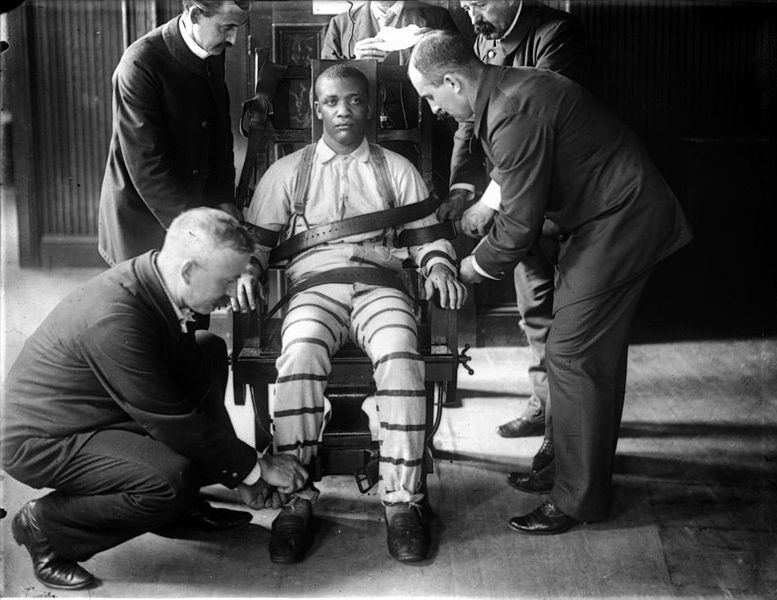A crowd had gathered in the field along a country road outside San Salvador, El Salvador. The noontime air was still as Church workers and peasants removed a crude cross made of tree limbs from a mound of fresh earth. Then they began digging.
Three feet down, their shovels hit upon the body of a woman. She was clad in blue jeans that had been pulled on backwards. They dragged the body out, placing it carefully on the ground near the cross. Her face was shredded beyond recognition, collapsed by a gaping gunshot wound.
It was December 1980, and Jean Donovan had already lain in her shallow grave for two days, atop the bodies of three nuns: Maura Clarke, Ita Ford, and Dorothy Kazel, friends and fellow church workers. Each had been raped, murdered, and secretly buried by members of El Salvador’s National Guard.
“El Salvador is such a beautiful country,” Jean had written in her diary the year before. “Where else would you find roses blooming in December?” It was a cruel irony that her life was choked off in its flower, only 26 Decembers after it began.
Jean had been born two months prematurely, as if so eager and full of life that she could not wait to leave the womb. She was raised in a close-knit Catholic family in the affluent Connecticut suburb of Westport, where her father worked as an executive for United Technologies, a defense contractor.
 Following in her parents’ footsteps, Jean early on set herself on the fast track of upward social mobility. By 24, she had a master’s degree in economics and had landed an executive post in Arthur Anderson & Son, one of the country’s largest accounting firms.
Following in her parents’ footsteps, Jean early on set herself on the fast track of upward social mobility. By 24, she had a master’s degree in economics and had landed an executive post in Arthur Anderson & Son, one of the country’s largest accounting firms.
She had no interest in the debates then raging over the Vietnam War or civil rights for blacks. She was leading the good life, she thought, as she put on her black leather jacket and drove her Harley Davidson motorcycle to work in downtown Cleveland, Ohio. Her only worries, it seemed, were those common to many young urban professionals – insecurities about her weight, her looks, and if she would ever marry and have children.
Still, there was an emptiness in the center of Jean Donovan’s young life. In 1977, she returned to Ireland to visit a priest she had met when she was a foreign exchange student there.
“Don’t laugh too loud,” she told him. “I’ve come to talk to you because I think I have to change my life.” During the course of their discussion, the priest, who had spent a decade as a missionary in Harlem and Peru, told her: “You’ve got everything. You should think about giving a little back to God.”
When she came home, she enrolled in a missionary program run for lay people by the Cleveland Diocese and the Maryknoll religious order.
“I have a gut feeling that my main motivation to be a missionary is a true calling from God,” she told her family and friends. “I want to get closer to Him, and that’s the only way I think I can.”
Over the objections of family members, as well as the protests of her fiance, she went off to work with the poor of El Salvador in 1979. Even as she left, she was consumed by self-doubts. “Why would God want me?” she asked in a letter to a friend. “I’m so inadequate and no good.”
As she would find out, civil war was brewing in that tiny Latin American country. The handful of families who controlled the land, wealth, and government were pitted against peasants and workers protesting years of squalid living and proclaiming their right to a better life.
Although it had always remained neutral in the conflict, the Catholic Church had been targeted by the Salvadoran government for persecution because of its work among the poor and the landless. Outright persecution had begun two years before Jean arrived in El Salvador, with the assassination of Jesuit Father Rutilio Grande, a missionary. Around the country, posters appeared with this warning: “Be a patriot; kill a priest!”
In her work for the Church, Jean aided children and families made homeless by the fighting of the civil war. Entries from Jean’s diary track the grim, steady rise in the number of bodies she and her colleagues helped bury—victims of government-sponsored terrorism and political murder.
“At times, I’m really scare for me as well,” she confessed to a friend. “But mostly I know the Lord will protect me, so I’m certainly not looking over my shoulder.”
During Lent 1980, government forces gunned down the Salvadoran Church’s highest official, Archbishop Oscar Romero, while he was saying Mass. To Jean, he had been a hero, and she had listened each Sunday to radio broadcasts of his sermons about the country’s slide into moral anarchy. She volunteered to serve at his funeral, which turned out to be a bloody affair in which government forces killed 30 more people.
Not long after that, Jean found two of her closest friends shot dead and lying in a pool of blood, just moments after the three of them had returned home from a movie. Still, she followed Archbishop Romero’s counsel, believing that guerilla violence was no solution to government violence and advocating nonviolent resistance to the repression.
“It’s so much harder to fight for your liberty in a nonviolent way than it is with a gun,” she wrote to a friend in August 1980. “It’s funny—people very close to me have been killed now, and yet I still think that. So I’m starting to think maybe I really do believe it. At the moment, the only nonviolent voice in the whole country is the Catholic Church, and I think they have to remain in a neutral position.”
As the violence continued to swell uncontrollably in El Salvador, she made a final visit home. Her friends and family, even her Irish priest friend, pleaded with her not to return.
“Several times, I have decided to leave El Salvador,” was her reply. “I almost could except for the children, the poor bruised victims of this insanity. Who would care for them? Whose heart could be so staunch as to favor the reasonable thing in a sea of their tears and loneliness? Not mine, dear friends. Not mine.”
She spent her last week visiting her parents, who said she seemed serene, confident, and carefree. As she set her face once more toward El Salvador, she was prepared for suffering, as if she believed that suffering was necessary if she was to get closer to Christ. “I think that the hardship one endures maybe is God’s way of taking you into the desert and to prepare you to meet and love Him more fully,” she wrote to a friend.
Along a dark Salvadoran road, late on December 2, 1980, she endured violation, humiliation, and execution in order to meet her Lord.
Yet, it is the Spirit of the Lord’s resurrection that seems to speak from the bones of Jean Donovan’s open grave. Jean’s was the spirit of one who came to believe that the rich must go to the poor to meet Christ and share in His resurrection.
“I don’t know how the poor survive,” she once wrote. “People in our positions really have to die unto ourselves and our wealth to gain the spirituality of the poor and oppressed. I have a long way to go on that score. They can teach you so much with their patience and their wanting eyes.”
Originally published in The Evangelist (March 25, 1993)
© David Scott, 2009. All rights reserved.


